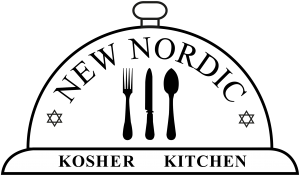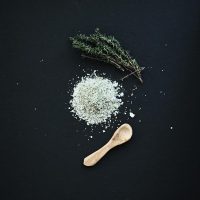Pesach
 8 days. 8 evenings. A celebration of freedom from Egyptian slavery. Does it matter to Jews today? Yes and no.
8 days. 8 evenings. A celebration of freedom from Egyptian slavery. Does it matter to Jews today? Yes and no.
Pesach is a somehow a very interactive holiday, where rituals merge with food traditions and all generations are involved. Especially the children are encouraged to ask questions.
An hour-long ritual held around the family table (often with invited friends as well – the more the merrier) takes off in ”Hagganah”. It describes the story of how our ancestors were set free.
We usually alternate in the reading.
In our midst is the Seder plate. Six ingredients are placed in order.
Horseradish/bitter herbs (symbolizing the bitterness of life as a slave), a hard-boiled egg (the circle of life), parsley (the initial flourishing of the Israelites and the coming spring), lettuce (the bitter enslavement of our ancestors in Egypt), charoset (apple, almonds and kosher wine – it’s sweetness represents freedom, and the mixture’s appearance reminds us of the mortar Pharaoh forced slaves to make), a shank bone (the lamb that the Jews sacrificed as a special Pesach offering).
On the table is also saltwater, symbolizing the tears of the slaves – and the unleavened Matzah (the wheat bread that was eaten by the slaves as they were rushed out of Egypt).
To me the Seder plate is a symbol of how food, memory and the story of being the people of the books bring us together even thousand of years from what was both among the darkest but also the most joyful moments in our history. Pesach or Passover as it is called is the most celebrated holiday among American Jews today.
However I doubt that slavery in Egypt is the first thing that comes to mind when you ask most Jews about the importance of celebrating Pesach. It is more about tradition, childhood memories, singing, reading and most important perhaps – bringing the family around a table of delicate (prepared for days) food and wine.
Even in families, that declares themselves non-religious Pesach is the most celebrated holiday, and funny enough – where the kosher cooking comes of age.
The preparation of Pesach involves intense cleaning, getting rid of ”chametz” (like flour, grain, dog food etc.) – a good occasion to clean all cupboards, freezer etc. and replace your entire cutlery with special Pesach plates, glasses etc. The observance of kosher is often more intense during Passover.
To a lot of people Pesach brings reflections of todays “slavery” – like being online 24/7, being a “slave” of bad habits or the brutal fact that the world has never seen as many slaves as today (yes, I know we are more people on the planet, that during Egyptian bondage). Researchers estimate that 21 – 36 million people are enslaved today. Many of them are in the food production industry. Therefore I think it makes sense to remember that being a free person is not a given privilege to all people on the planet. It should be a basic human right and therefore worth remembering every year.

